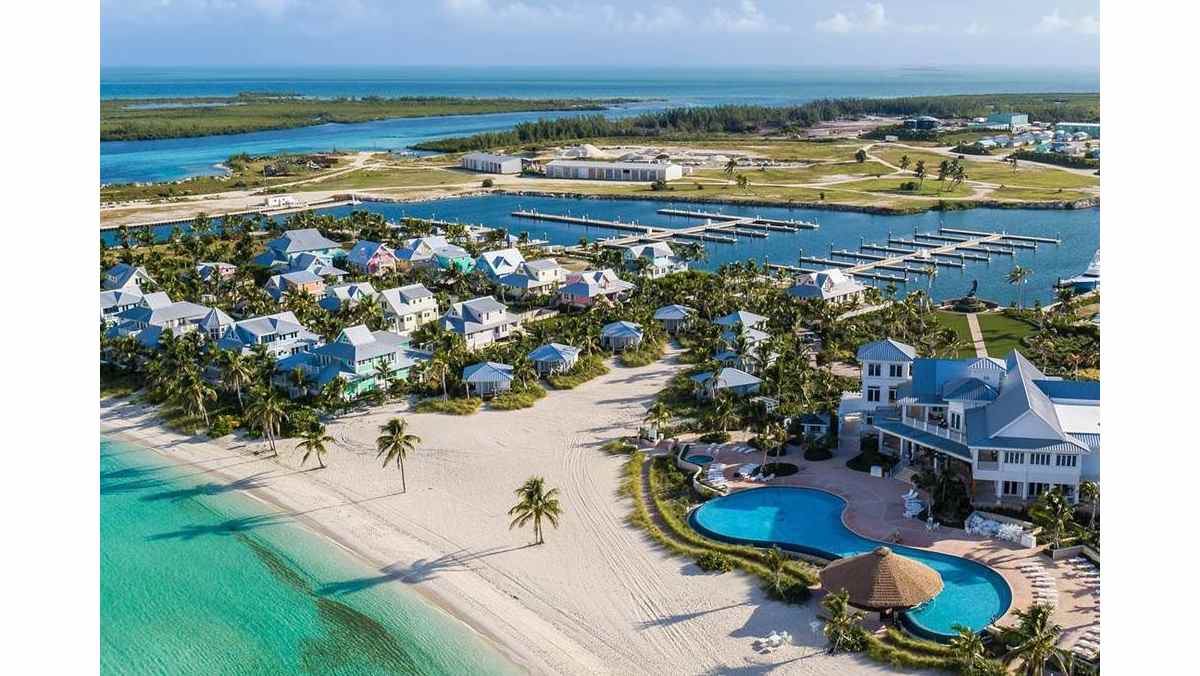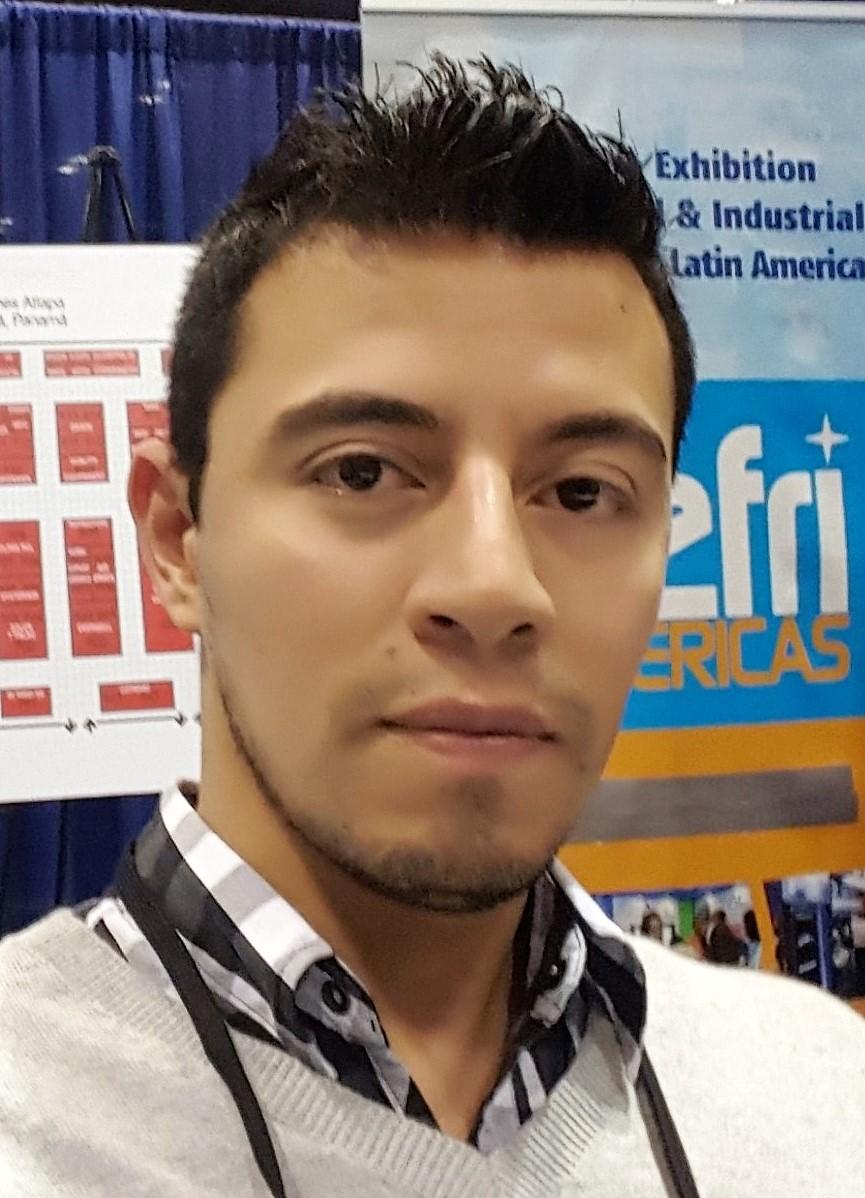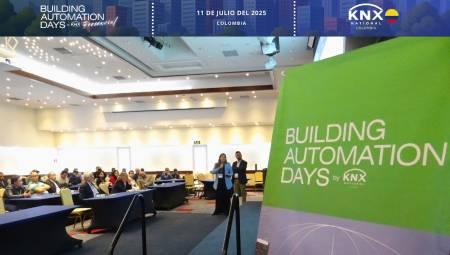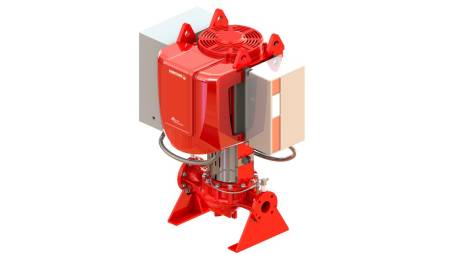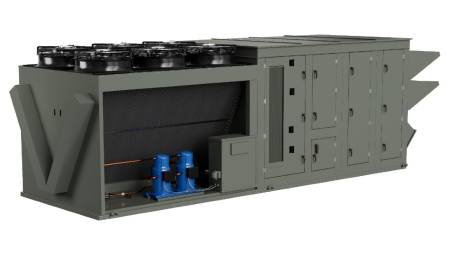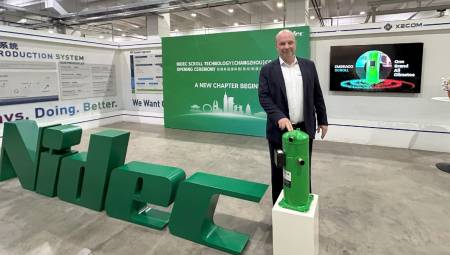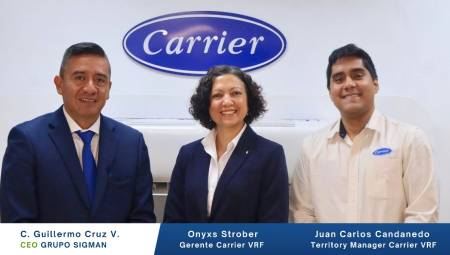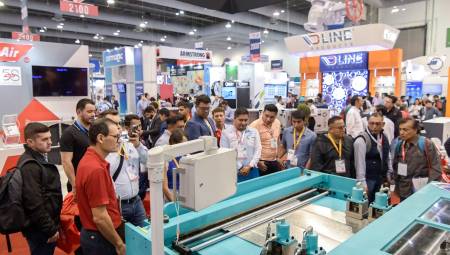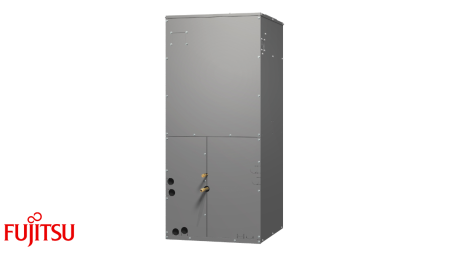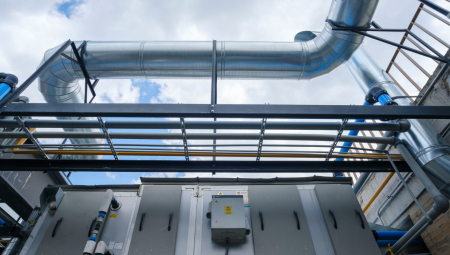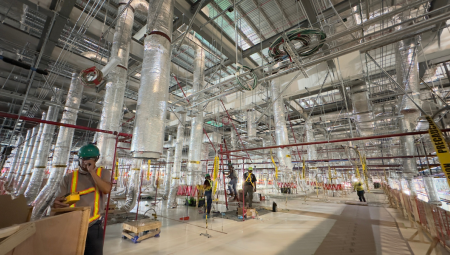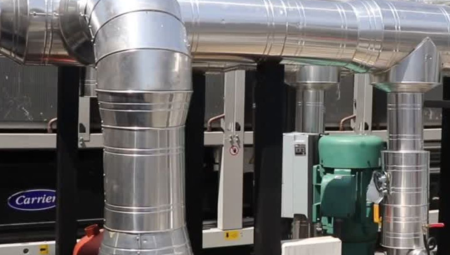Climate control case study for a resort in the Bahamas that cut its energy consumption in half.
By Airzone
Chub Cay is a resort in the Bahamas that puts sustainability at the heart of its operations. The resort's managers have worked hard to transform this private island paradise into an ecotourism destination. To do this, they installed an 8-acre solar farm, which they use both to collect energy and to purify salt water into drinking water. They also grow a significant amount of the fruits and vegetables consumed by both guests and staff on the island.
However, the environment is not the only reason for this decision, but necessity: Chub Cay is completely isolated from any terrestrial power grid. Resort owners must produce every watt of energy used on the island, either through solar panels or diesel generators. But Chub Cay wants to limit its carbon footprint and achieve energy independence from fossil fuels. There is only one problem: its select clientele does not want to be hot.
Chub Cay needed to drastically reduce energy consumption while preserving the comfort of its guests. Upgrading the climate control systems throughout the resort was crucial to achieving this, but finding the right mix of technologies was no easy task.
The Challenge
Even in the early stages of Chub Cay's sustainability efforts, it was clear that climate control would play a huge role in reducing the island's reliance on diesel-generated power. Simply setting a higher temperature in unoccupied areas would result in great savings. However, automatic guest detection can be complex: motion sensors often interpret a room full of sleeping occupants as "empty." That the resort's exclusive clientele woke up drenched in sweat because the thermostat thought they were furniture was not an acceptable result.
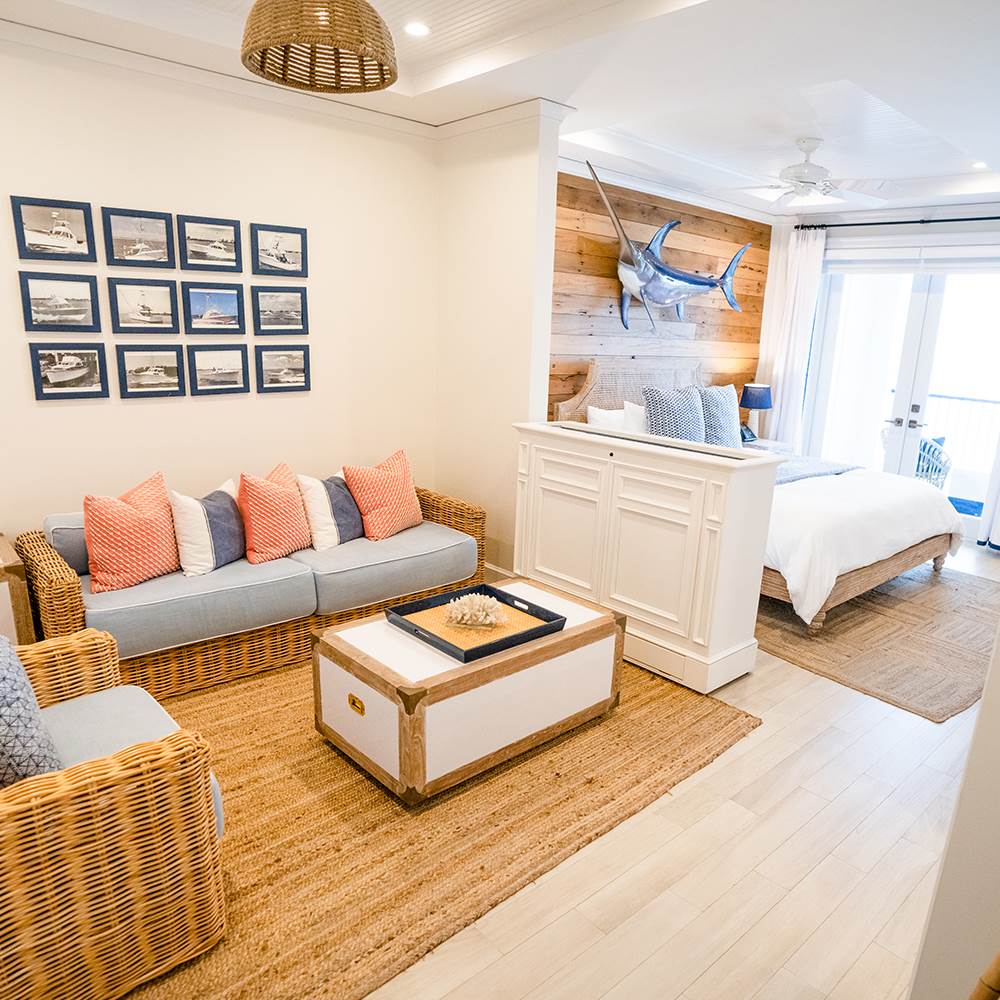
In addition, both the resort's own sustainability requirements and HVAC efficiency regulations in the Bahamas call for the use of highly efficient mini-split units. However, connecting these modern units, including mini-split, Inverter, and VRF units, to third-party IoT control devices such as smart thermostats or building automation systems can reduce their efficiency. Why?
It's a little-known trap: IoT devices and HVAC units don't use the same communication protocols, so they're unable to communicate bidirectionally on their own. If you connect a smart thermostat (or other IoT control device) directly to an Inverter/VRF unit, it will no longer be able to vary its speed and output in response to environmental conditions. It becomes a single speed unit, and often, ends up being even less efficient than a traditional compressor.
For Chub Cay to achieve its sustainability goals, they needed a smart thermostat and occupancy sensor solution that could automate different temperature set points for occupied and unoccupied rooms, without relying on a motion sensor. They also needed a control interface between the automation system and the HVAC units. And finally, they needed a platform that would allow Chub Cay staff to monitor and manage the entire system centrally.
The Solution
Richie Renaud, owner of Coconut Point Cooling and Chris Pearson, owner of Pearson AC and Refrigeration, approached the upgrade of the Chub Cay Resort's HVAC system as a joint project. They started from the occupancy detection challenge and worked their way up from there.
"The ecobee thermostat was the first piece of the puzzle for us," Pearson says. "Its built-in smart sensors use Passive Infrared Radiation (PIR) to detect if someone is in the room, not just motion detection. Even if the occupants are sleeping, ecobee is smart enough to remember that one or more of the PIR sources in the room is a human and maintain the temperature accordingly."
Through ecobee, Pearson and Renaud seemed to have found a solution to two of their three design challenges. Not only does ecobee offer an occupancy-sensing thermostat with a luxury finish to match the sophisticated aesthetics of Chub Cay, but they provide the ecobee SmartBuildings app for centralized thermostat management.
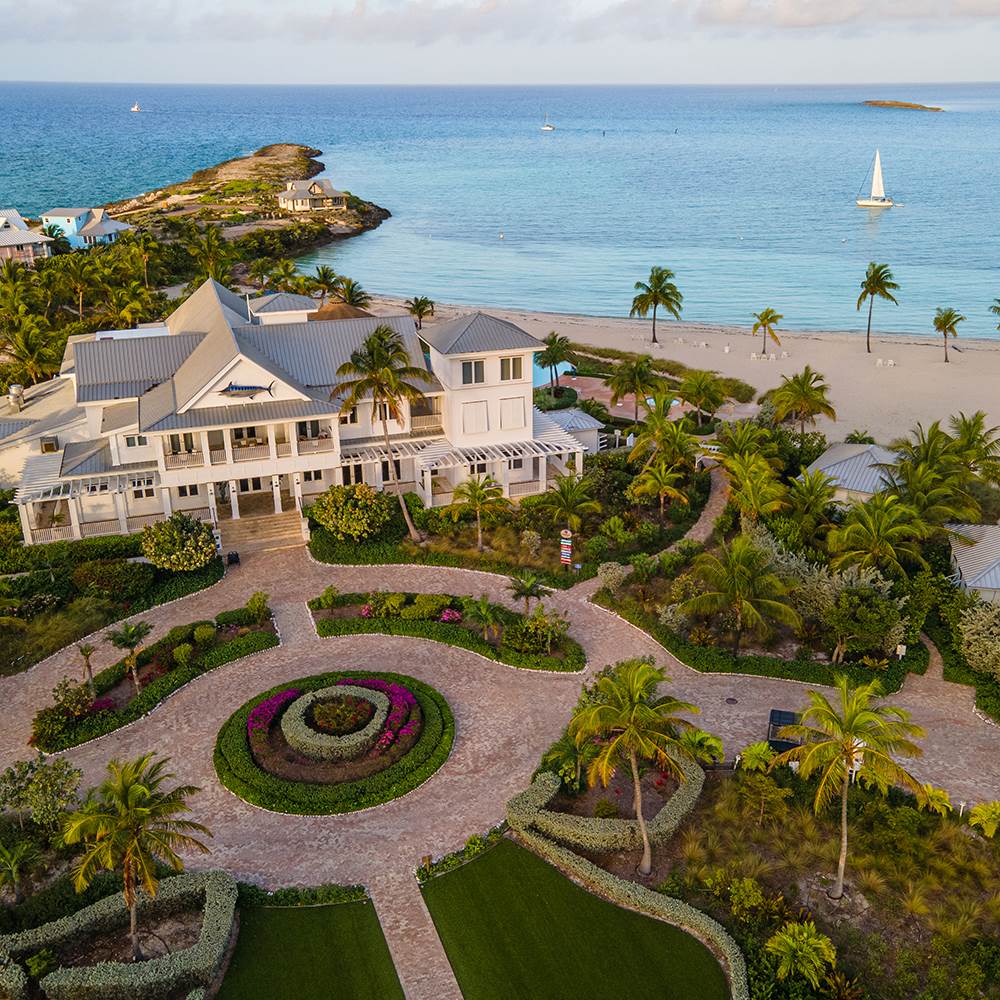
However, Pearson and Renaud still needed an interface to bridge the gap between the ecobee thermostat app and the Mitsubishi mini-split units used throughout the resort.
"Mitsubishi does make a smart thermostat adapter, but we would have needed multiple shipments to get enough for this project, plus it doesn't modulate the inverter compressor," Pearson says. "Since we had to charter all the equipment for this project to a private island, we decided to look at additional options. Our ecobee representative, Chris Vosburgh, introduced us to Airzone."
Airzone has spent decades cultivating relationships with Inverter/VRF manufacturers. Its Aidoo Pro control device provides a bridge between IoT and HVAC devices using HVAC equipment manufacturers' own proprietary protocols to facilitate true two-way communication. Aidoo Pro fixed the control interface issue, but one last link was still missing. This product was created for residential applications; when the project started, there was no integration between the ecobee SmartBuildings app and Aidoo Pro.
As Pearson and Renaud installed thermostats, sensors, and control units across the island, ecobee and Airzone worked together to develop the necessary integration. In three weeks, they developed a custom integration that allows Chub Cay owners to control more than 40 ecobee thermostats via the ecobee SmartBuildings app or the Airzone Cloud web interface.
The results
When Chub Cay opened its doors, they were already using mini-split units all over the island. With these efficient units, one might think that Renaud and Pearson's team had little room to improve efficiency. But they would be wrong.
"The manager of Chub Cay installed meters to monitor the kilowatts used and measure the success of this sustainability effort," says Pearson. "Its energy consumption has fallen by about 50%."
Where did this dramatic reduction come from? The new system implements security measures against very common behaviors.
"Prior to these upgrades, guests at Chub Cay would check in and immediately lower the air conditioning to 70 degrees Fahrenheit in their rooms," Pearson says. "It could take up to two or three weeks for the staff to figure it out, and the resort would be burning diesel to cool those rooms all the time."
The pre-programmed temperature for occupied and unoccupied spaces eliminates the possibility of rooms staying with the air conditioning at an absurdly low temperature. In addition, Pearson and Renaud trained staff to help avoid this problem.
"We showed staff how to use the ecobee SmartBuildings app and Airzone Cloud to pre-cool rooms before guests arrive," Pearson says. "That way, they're not tempted to crank up the air conditioning the moment they arrive."
This cloud management system also allows Chub Cay, Renaud, and Pearson to detect and fix issues before they impact guests. A room that overheats can alert management to a potential problem with the air conditioning. Using Airzone Cloud, Renaud and Pearson can even see machine error codes and arrive at Gekabi Chub Cay with the necessary parts and the right equipment to fix the problem.
Chub Cay no longer uses its diesel generators during the day, but instead takes advantage of the 340 days of Bahamian sunshine to power the island.
"This is an approach that we could replicate throughout the Caribbean," Pearson says. "The HVAC control upgrade generated very significant energy savings for Chub Cay and greatly simplified operations for the remote, private resort."


